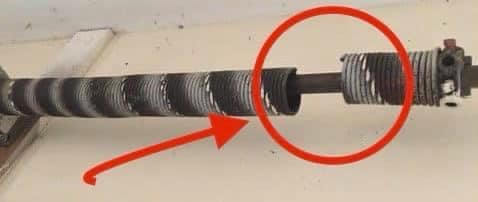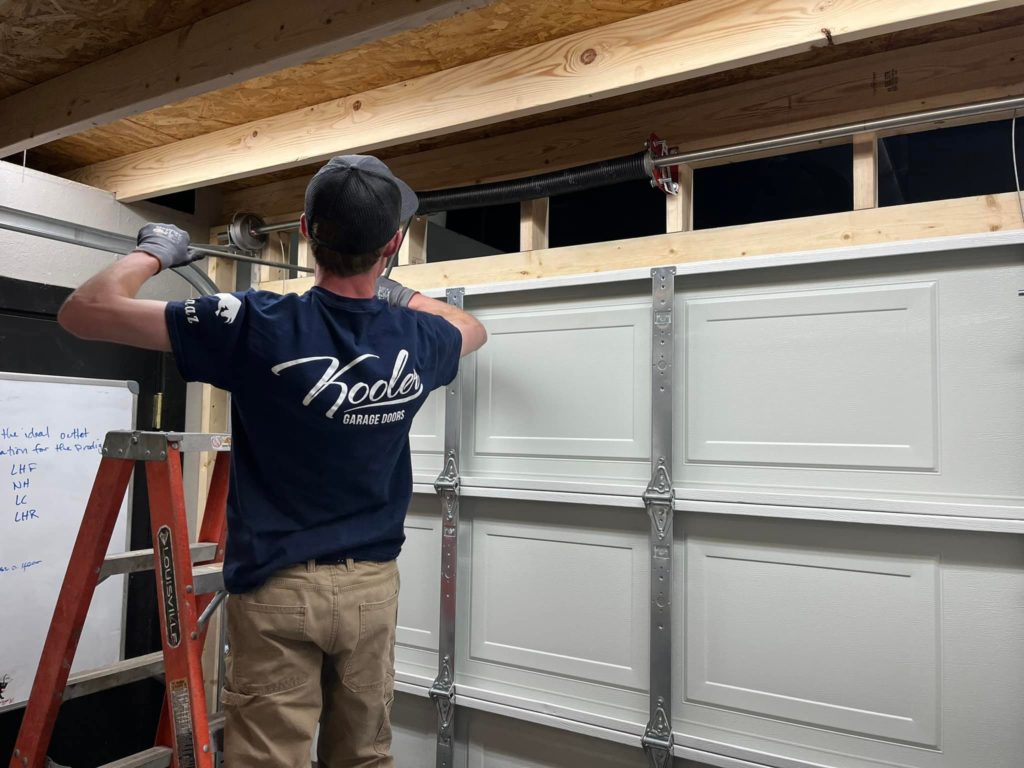Your Experienced Garage Door Repair Company
Kooler Garage Doors knows a thing or two when it comes to garage door springs. We’ve replaced too many to count! That’s why we know just what to do when something goes wrong with yours.
Here is a rundown of everything you need to know about garage door spring replacement: the signs to look out for, what to do, and more! Keep reading to find all you need to know!
Why Do Garage Door Springs Break?
Garage door springs take most of the brunt for raising and lowering your door. The coils of the springs hold the tension necessary to raise and lower your door effortlessly. Through the years, this tension causes a lot of wear and tear. This will eventually result in your springs snapping from the strain.
Most garage door springs will last for roughly 10,000 cycles. One cycle is one whole opening and closing of your garage door. If you used your garage door once a day, this would last you about 13 years. Since most people use their garage doors more than this, you can expect your springs to last around 8-10 years.
Signs You Need a Garage Door Spring Replacement
- Your garage door won’t open/close or is stuck.
- Your garage door opens at an angle.
- Your garage door starts to open/close and then stops/reverses.
- You notice 3-4″ gaps or rusting in your garage door spring coils.
- Your garage door makes a grinding or snapping noise.
- Your garage door slams shut unexpectedly.

The Best Garage Door Spring Replacement Services
Why You Need a Professional
Garage door springs may look simple, but they can be very complicated to replace. Not to mention, they’re extremely dangerous to install correctly. When you have a broken garage door spring, all of the tension that the spring used to open and close the door has no proper outlet. This can cause your door to slam shut unexpectedly or your spring to shoot out.
A professional garage door repairman will know to safely and efficiently replace your spring so that your garage door is safe to use once again. In the meantime, don’t try to operate your door; it can cause more damage to your garage door structure. Wait until our Kooler Garage Doors professionals have taken care of the issue.
Types of Garage Door Springs
Torsion Springs
Torsion springs are the most common and safest option for residential garage door springs. The springs can be found above the garage door, rolled into a tight coil. Torsion springs operate by rotating to lift and lower the garage door.
These springs operate smoothly, minimizing jerkiness in your garage door. They are also safer when they break since they are more controlled. When they break, they won’t fly out and potentially injure someone. However, if you find you’re garage door springs are broken, or are about to break, it’s always best to be on the safe side and keep your distance when a spring breaks.
We keep our trucks stocked with high-cycle replacement springs, so we’ll be ready to get your garage door back to normal in no time!
Extension Springs
Extension springs work slightly differently. They’re located on either side of the garage door tracks that are on the ceiling. They operate by extending to pull the garage door upwards.
They have a much less controlled motion than torsion springs, resulting in a jerky movement for the garage door. In addition, they are more dangerous when they break.
That being said, our team has the expertise to safely repair this type of spring. We can also install torsion springs in their place as well.
Contact Us for Garage Door Spring Replacement
If you think you need a garage door spring replacement, contact Kooler Garage Doors today! We can get your springs replaced in no time! We’ll make sure your garage door is running safely with one of our expert technicians! Call us today to get started on a garage door spring replacement in Gunnison and Grand Junction, CO!
Don’t want to have to wait for your spring repair? Join our Golden Key Club to get on our priority list and annual inspections. You’ll always be our first priority with this membership! Contact us to learn more!
